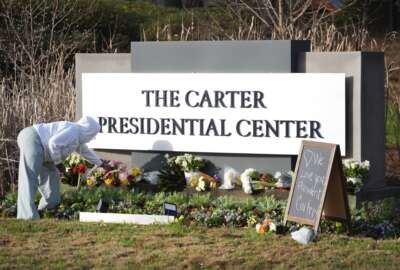US beach money forces town to give more parking near coast
One of the biggest obstacles to public beach access in New Jersey may be ending
MANTOLOKING, N.J. (AP) — One of the biggest obstacles to public beach access in New Jersey may be coming to an end.
A Jersey shore community that was devastated by Superstorm Sandy may drop drastic limitations on street parking that had the effect of making it difficult if not impossible for outsiders to use its beaches.
Mantoloking proposes dropping its longstanding law limiting parking to no more than two hours because the federal government is insisting on more parking as a condition of spending tens of millions of dollars on a beach replenishment project in town. The protective work is badly needed in Mantoloking, where virtually every one of the 521 buildings that existed before the October 2012 storm was damaged or destroyed by it.
Borough Councilman Chris Nelson said the change is being made at the behest of the U.S. Army Corps of Engineers.
“Part of the deal with the Corps is increased access,” Nelson said Thursday. “In Mantoloking, a lot of things have to change. That’s part of the requirement from the Army Corps.”
In response, the borough proposed a new parking ordinance Tuesday that will extend the two-hour limit to four hours. It also will allow parking along the shoulder of Route 35, which was forbidden before, and parking will be unlimited on the street closest to the ocean and some of its side streets.
Mantoloking’s onerous parking restrictions were among the most discouraging to public beach access in New Jersey, but they were far from unique. Other towns also restrict parking near the beach, do not provide public restrooms nearby and prohibit beachgoers from bringing food and drinks other than plastic water bottles onto the sand.
“Wow! I’m in shock,” said Ralph Coscia, president of Citizens Right To Access Beaches, who has long criticized Mantoloking’s parking restrictions. “This is a good sign. We hope other towns follow suit. We’re glad they finally realized that access is an important component of beach replenishment, and parking is a big part of access.”
Steve Rochette, a spokesman for the Army Corps, said the agency insisted on adequate public access and parking as a condition for doing the beach work, a standard that will continue to be applied to future projects in New Jersey and elsewhere.
“There does have to be sufficient parking,” he said.
The former policy was so restrictive it allowed motorists to park for only two hours anywhere in town within a 24-hour span. Those who moved their car to a different spot on the same street or even to a different street still were subject to being ticketed.
The new policy would permit motorists to move to a different spot on the same street after four hours.
The ordinance will be the subject of a preliminary vote May 16, with a public hearing and final vote scheduled for June 20.
___
Follow Wayne Parry at http://twitter.com/WayneParryAC
Copyright © 2025 Federal News Network. All rights reserved. This website is not intended for users located within the European Economic Area.





